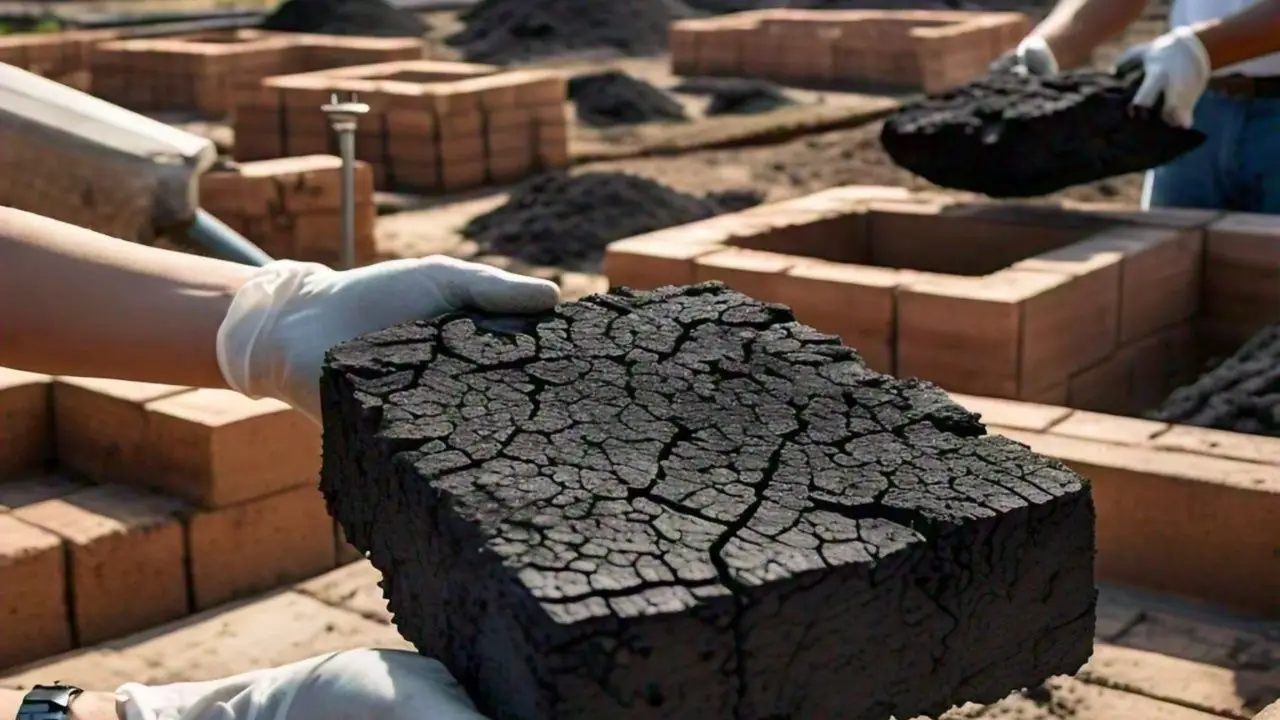Environmental challenges are becoming increasingly pressing worldwide. World needs multifaceted solutions. Innovative solutions like biochar are becoming evidently prominent across several industries. Biochar is produced through the pyrolysis of organic materials. It offers a diverse range of benefits such as carbon sequestration, thereby mitigating climate change.
Red Mountain Biochar is making advancements under the leadership of founder Bill Wyatt for its biochar production and application. They provide essential services to farmers, construction companies, steel manufacturers, and beyond. This article will delve into science behind biochar, its implications, and other related factors for sustainable agriculture, construction practices, and the steel industry.
What is Biochar?
Biochar is produced through a process called pyrolysis. This is a carbon-rich material that uses organic materials in production such as:
- Agricultural residues
- Wood chips
- Other biomass
These materials are heated in a low-oxygen environment to produce biochar. This transformation leads to a stable form of carbon that ensures carbon-Negative solutions for hundreds or even thousands of years. These are characteristics of biochar that make it an excellent investment in various sectors:
Carbon Sequestration: Biochar is astable carbon form that contributes to carbon storage for hundreds of years.
Soil Amendment: Biochar enhances nutrient retention and water-holding capacity that results in improved soul health.
Water Reduction: Use of biochar allows recycling of agricultural and forestry waste. This supports sustainable waste management practices.
The Science Behind Biochar
To understand the science behind biochar, you need to understand its physical and chemical properties. Biochar has a porous structure. This structure makes a significant impact on its surface area. It allows nutrients absorption and retains moisture effectively.
Biochar also has a high pH and cation exchange capacity (CEC). This enhances soil fertility by ensuring instant availability of nutrients to plants and fosters beneficial microbial activity. This shows the highly advantageous role of biochar as a sustainable agriculture solution. The science behind biochar production shows how it can play a critical component of regenerative agricultural practices.
Biochar Role in Agriculture
Enhancing Soil Health and Crop Yields
Agriculture sector is one of the major beneficiaries of biochar. It serves as a powerful soil amendment. Farmers are increasingly using it to heal soil from degradation and enhance productivity. Major benefits of biochar in agriculture include:
Enhanced Nutrient Retention: Biochar helps soil retain essential nutrients that improves fertility of soil. Without biochar, these nutrients would otherwise leach away. This ensures access of nitrogen, phosphorus, and potassium to crops. This nutrient enhancement plays a crucial role in agricultural land sustainability, as it leads to reduced use of chemical fertilizers.
Improved Water Retention: Biochar has a unique structure that causes moisture retention. This makes biochar an excellent solution in regions susceptible to drought. Increased water-holding capacity reduces the need to irrigate crops frequently. Thus, it leads to water conservation.
Improvement in Microbial Activity: Biochar ensures a habitat of soil microorganisms that promotes biodiversity and improves soil health. These microorganisms enhance nutrient cycling, reduce diseases, and overall stabilize the ecosystem.
Case Study of Red Mountain Biochar in Agriculture
Red Mountain Biochar is successfully collaborating with farmers to implement biochar solutions. It demonstrates enhanced soil health and crop yields. For instance, one regional farm used biochar into its soil management practices, and reported a significant increase in corn yields. After the application, soil tests were conducted. Tests showed improved pH levels and nutrient availability. It underscores how biochar is an effective solution to enhance agricultural productivity and overall soil health.
The Role of Biochar in Regenerative Agriculture
Biochar seamlessly aligns with the principles of regenerative agriculture. It focuses on restoring and enhancing the health of ecosystems. Carbon sequestration in soils mitigates impacts of climate change. This also leads to enhanced resilience in agricultural systems. This holistic approach supports sustainable practices because of its long-term ecological health while maintaining productivity. I’m regenerative agriculture, biochar serves both as:
- Soil amender
- Tool for building healthy ecosystems
Biochar Role in Construction Sector
Pioneering Sustainable Materials
The construction industry is facing immense pressure from authorities to adopt sustainable practices. This is becoming increasingly important in response to environmental concerns. However, it’s biochar solutions that are emerging as transformative solutions to meet both industry and sustainable environment goals. Integration of biochar into concrete and other construction materials had various advantages. Below are some of the major advantages.
Carbon-Negative Concrete: Biochar integration in concrete formulations significantly reduces the carbon footprint that would otherwise release to the environment with concrete production. Traditional concrete production releases a substantial carbon amount. This makes biochar-infused concrete a practical alternative of traditional concrete production practices as an eco-friendly construction.
Improved thermal insulation: Biochar is packed with various unique properties that enhance thermal insulation or building material. This makes structures more energy-efficient. This is deeply relevant to energy efficiency goals in the construction sector, as it reduces heating and cooling costs for buildings.
Water Utilization: Biochar use means recycling of agricultural and forestry waste. This approach diverts waste from landfills, reducing overall waste significantly. This is part of a circular economy approach to ensure dissemination of sustainable construction practices, as it causes resource extraction and promotes waste reduction.
Case Studies in Construction
Red Mountain Biochar has been collaborating with construction firms to drive sustainable approaches that meet stringent sustainability standards. We were involved in a notable commercial building project that used biochar in a concrete mix. This approach fulfilled our eco-friendly structure aims as well as yielded significant cost savings with improvement in energy efficiency. This is an example of how we can collaborate with industries to produce sustainable solutions for the lasting benefit of the environment and the economy.
Building a Sustainable Future
The use of biochar in construction is an incredibly beneficial approach to achieve broader sustainable goals. This could result in:
- Reduced greenhouse gas emissions
- Improve resource efficiency
- Reduced costs
Prioritizing these means contributes to carbon sequestration. This is evidence of how the construction industry can cut down its significant percentage of emissions and address climate change.
Demand for sustainable building material use is increasingly growing. Biochar stands out as an incredible solution that shows compliance with environmental stewardship and corporate responsibility.
Biochar Role in Steel Industry
Transforming Steelmaking Processes
The steel industry is one of the major contributors to carbon emissions globally. This presents us with a significant challenge in efforts to achieve sustainable environment goals. However, biochar integration into steel production offers hope to ensure reduced carbon footprint of this vital sector.
Carbon Neutrality: Biochar can be an efficient alternative of traditional fossil fuels used in steelmaking. This facilitates a transition to promote carbon-neutral production methods. This transformation supports both global sustainability targets and efforts to open new avenues for innovation in the steel industry.
Energy Efficiency: Biochar use improves combustion process. This enhances steel furnace energy efficiency. Biochar incorporation also means lower operational costs and reduced emissions. Simply put, biochar addresses both environmental and economic concerns.
Sustainable Sourcing: Biochar use promotes renewable energy resources. This approach aligns with efforts to meet the increasing demand for sustainable materials. Manufacturing industry is showing signs of healing from climate change effects. This is also driving more acceptability of brands with hiked prices in an era where consumers and investors are taking environmental responsibility.
Building a Sustainable Future
Biochar has an extensive role in steel production while several challenges remain. It requires significant investment to enhance infrastructure and technology to scale up biochar production to meet its increasing demand in the industry. However, prospects look promising. Ongoing research and collaboration between industries shows that industry stakeholders can pave the way for widespread adoption. More companies are recognizing the long-term benefits of incorporation into their operations. This is a promising sign in efforts to achieve a more sustainable steel industry.
The Future of Biochar
Expanding Applications Across Industries
Applications of biochar are expanding as the understanding of its benefits continue to evolve. New research suggests potential benefits of biochar in wastewater treatment, carbon capture, etc. Biochar’s versatility positions it a crucial product to address various environmental challenges.
- Biochar contains adsorption properties that can help in removing contaminants and improve water quality. This gets more important when water scarcity and pollution are growing concerns.
- We can sequester CO2 emissions from industrial processes by utilizing biochar in carbon capture technologies.
- Research on biochar use as a feed additive for livestock is going to potentially benefit animal health and reduce methane emissions.
Policy and Regulatory Frameworks
Policies and regulatory frameworks can have significant influence on the future of biochar. With the increasing demand of renewable resources, biochar demand will be high. This can further accelerate with supporting policies across various industries. Here are some areas:
- Policies should focus on financial incentives.
- Government should fund research initiatives to drive applications of biochar.
- There should be certification programs for biochar products.
Biochar Solutions are the Future
Biochar serves beyond just a product but rather a comprehensive solution. Integration of the products is driving:
- Environmental sustainability
- Agricultural productivity
- Innovative construction
As environmental challenges become unprecedented, the need for sustainable solutions has never been as urgent as now. Red Mountain Biochar is on the forefront to promote this movement. We provide tools, knowledge, and support necessary for industries to make the transition a breeze.
However, education, collaboration, and advocacy can help us demonstrate that sustainable practices are also achievable now.




